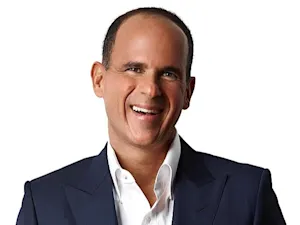
Nurse Kills Up to 400 Patients
Charles Cullen's name is often mentioned with a sense of dread and disbelief. As a nurse, he was expected to care for and save lives, but Cullen exploited his position to become one of the most prolific serial killers in American history. Let's explore his dark legacy, his eventual capture, and the systemic failures that allowed his crimes to continue unchecked for so long.
A Friendship Born in the ICU
Amy Loughren, a fellow nurse, first met Charles Cullen at Somerset Medical Center in New Jersey. Cullen's extensive knowledge of medications and critical care impressed her, and they quickly became friends. Loughren, a single mother and travel nurse in the ICU, hid her cardiomyopathy diagnosis to avoid losing her job and health insurance. When Cullen joined the ICU, he sympathized with her situation and helped her manage her workload and conceal her illness. Loughren had no idea that Cullen was secretly murdering patients by administering lethal drug overdoses.
 Somerset Medical Center. Photo by Ekem
Somerset Medical Center. Photo by Ekem
Connecting the Dots
Cullen's journey as a nurse took him through nine hospitals in New Jersey and Pennsylvania over 16 years. His method involved injecting fatal doses of medications like insulin and digoxin into IV bags, leading to random patient deaths. Despite suspicious patterns and unexplained deaths, hospitals often opted to quietly let Cullen go rather than investigate further.
Loughren's realization of Cullen's crimes came slowly. Initially, she defended him when detectives began investigating unusual medication withdrawals. However, the mounting evidence presented by law enforcement made it impossible for her to deny the truth. She ultimately agreed to work with detectives, even wearing a wire to capture Cullen's partial confession.
Arrest and Aftermath
 Cullen's Mug Shot
Cullen's Mug Shot
After Cullen's arrest in 2003, he admitted to killing up to 40 patients, though investigators believe the actual number could be as high as 400. He later confessed to contaminating on average three to five IV bags each week, which went out to patients at random. Cullen claimed he administered the deadly doses to "alleviate patient pain and suffering." He was sentenced to 11 life terms without the possibility of parole. Loughren visited Cullen in prison, but after Cullen learned of her involvement in his capture, he ended all communication with her.
In the days following Cullen's arrest, hospitals and prosecutors reopened old cases, and public officials scrutinized hospital hiring practices. This case shed light on the grave shortcomings within the U.S. healthcare system, particularly the tendency of for-profit hospitals to prioritize financial stability over patient safety. It also highlighted how hospitals failed to act decisively against Cullen. Instead of confronting the issue, they often provided positive or neutral references to move him to other facilities, effectively making him someone else's problem.
Reflections on the Crimes
Loughren, who retired from nursing in 2021, reflects on the complexities of her relationship with Cullen and the systemic issues that allowed his crimes to continue. She emphasizes the need for accountability and the importance of addressing mental health issues within the healthcare profession. She believes that holding Cullen accountable is crucial for the victims' families and for any meaningful change to occur within the healthcare system.
The story of Charles Cullen is a stark reminder of the potential for darkness within the healthcare system and the necessity for accountability. Cullen's legacy is one of horror and betrayal, but it also serves as a catalyst for change in how we approach healthcare and justice.
References: When killer nurse Charles Cullen admitted: I killed 40 people | Historical headlines | 'Did I notice a dark side?': the true story behind serial killer drama The Good Nurse























